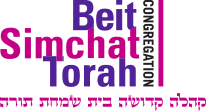
Tu BiSh'vat Seder
Join us as we celebrate Tu B’Shvat—the Jewish new year for the trees! While it may still be cold and grey in New York, growth is happening, and new life will soon be sprouting beneath our feet. In a time when the effects of climate change are increasingly destructive, our tradition gives us an opportunity to bless the beauty of the natural world and to deepen our spiritual connection to the trees and plants that we depend on for so much.
CBST Tu B’Shvat Seder
Wednesday, February 12 | 5:00pm ET | Zoom
Led by Cooperberg-Rittmaster Rabbinical Interns Alana Krivo-Kaufman and Marques Hollie, we will partake in a communal Tu B’Shvat Seder. Through song, kavanot (intentions), and blessings, we will bring holiness to our ceremonial foods and drink. Our Seder will take place online only, via zoom.
To participate in the Seder, we invite you to bring:
- White and Red grape juice or wine—enough for four cups!
- Food(s) with an inedible outer covering and edible inside: pistachios, peanuts, pomegranate, bananas or citrus.
- Food(s) with an edible outside but inedible pit inside: dates, olives, apples, nectarines.
- Food(s) that are entirely edible: berries, figs, or grapes.
- Fragrant spices, for smelling.
Whether you have these items or not, we encourage you to join this beautiful ritual.
Tu B’Shvat Teaching
by Rabbi Marisa James
Growing up in Connecticut, I didn’t understand why we celebrated Tu B’Shvat – the new year of the trees – when so many of them were bare. Why would one celebrate trees at a time of year when it was too cold to climb them and their branches were bare?
When I lived in Jerusalem, I understood. In the month of Shevat, the almond trees begin to blossom, almost overnight going from bare branches to clouds of gorgeous, pale-pink or white flowers. Of course the new year for the trees would follow the climate where the holiday began! creatively about rooting it in our lives today.
Judaism became a portable religion after the destruction of the Temples in Jerusalem and the expansion of Jewish life into the diaspora, and there was the possibility that holidays that were tied to a particular climate and a particular set of crops might be abandoned. Fortunately, humans have a deep need to create meaning, to connect to the past, and to create lasting ritual, wherever they are.
So when we celebrate Tu B’Shvat in places where the trees are not showing new signs of life, we find ways to interpret and reinterpret our celebrations.
One year, tapping maple trees at my parents’ house to make maple syrup, I began to think about how Tu B’Shvat connected me to this climate. The timing of Tu B’Shvat, in late January or February, is also when the sap starts flowing in the maple tree trunks, when nights are below freezing and days are sunny and crisp. It’s not as visible as the almond trees’ stunning flowers, but this current of sweetness marks a new year for the maples.
The world may look frozen, with harsh winds battering us from many sides. But there’s always growth hidden somewhere, there is new energy and potential growth just waiting to emerge. Tu B’Shvat invites us to notice the potential for new flourishing even when it’s not visible, and to bless the sweetness we can help bring to the surface, connecting with our ancient tradition while thinking creatively about rooting it in our lives today.
Interested In Doing More?
Our partners at Rabbis for Human Rights are planting trees in the West Bank with Palestinian families and farmers whose trees have been destroyed by extremists. When you donate a tree or trees they will be planted by Israelis and Palestinians working together for human rights, justice and peace in Palestinian villages in the West Bank and among the unrecognized Bedouin villages of the Negev.
Learn More and Participate
